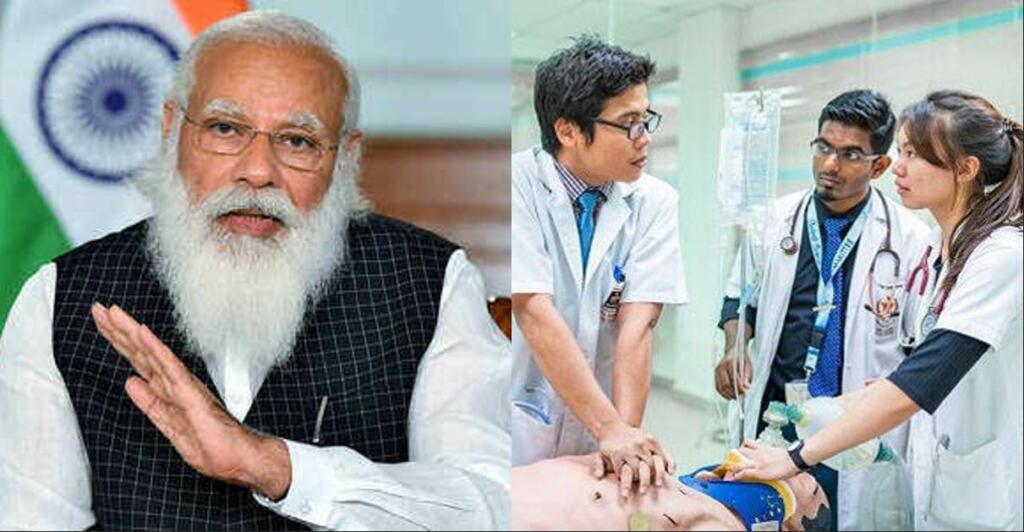The Modi government made a big announcement today regarding the reservations policy under the All India Quota (AIQ) scheme. Prime Minister Modi tweeted, “Our Government has taken a landmark decision for providing 27% reservation for OBCs and 10% reservation for Economically Weaker Section in the All India Quota Scheme for undergraduate and postgraduate medical/dental courses from the current academic year.”
Our Government has taken a landmark decision for providing 27% reservation for OBCs and 10% reservation for Economically Weaker Section in the All India Quota Scheme for undergraduate and postgraduate medical/dental courses from the current academic year. https://t.co/gv2EygCZ7N
— Narendra Modi (@narendramodi) July 29, 2021
Right after the big announcement was made, some anti-reservation crusaders on social media went berserk. Without going into the depth of the announcement, they started alleging that reservations were being preferred to merit. But is that true?
As far as the history and origins of the AIQ scheme are concerned, it was introduced in the year 1986 under the directions of the Supreme Court of India for the purpose of providing domicile-free, merit-based opportunities to students from any state to study in a good medical college located in some other state.
The AIQ seats consist of 15% of the total available undergraduate seats in undergraduate courses and 50% of the total available postgraduate seats. The rest of the seats make up the domicile-based local seats.
Till 2007, there was no reservation in the AIQ scheme. However, in 2007, the Supreme Court introduced reservation of 15% for SCs and 7.5% for STs in the AIQ scheme. This means that out of every 100 seats in a State medical/ dental college for an undergraduate course, 15 seats would be allotted to the All India Quota (AIQ). Further out of these 15 seats, 15% of seats will be reserved for SCs and 7.5% for STs.
Even under the latest announcement of reservation for OBCs and EWS, only the AIQ seats will be reserved and not all the college seats unlike what people are claiming.
It may be noted here that OBC reservation is being already provided in all the Central Educational Institutions viz. Safdarjung Hospital, Lady Harding Medical College, Aligarh Muslim University and Banaras Hindu University etc. under the Central Educational Institutions (Reservation in Admission) Act, but the benefit of the same was not extended to the AIQ seats in the State medical and dental colleges.
Moreover, the Madras High Court had passed an order dated July 27, 2020, directing that reservation should be granted to the OBC categories also in AIQ seats. And in its own words, the Madras High Court stated, “Not to implement the reservation is not a choice.” So, implementing reservation was really a mandatory step for the government.
As far as the effects of the latest announcement are concerned, there has been a uniform practice of increasing the total number of seats whenever a reservation clause is created in favour of the OBCs. In the year 2009, when OBC reservation was implemented in higher educational institutions, the non-reserved seats were also increased in the same proportion so that the percentage of general seats was not reduced.
Therefore, higher educational institutions implementing OBC reservation had increased the seats here by 50%. Similarly, in order to provide 10% reservation to the EWS category, educational institutions had to increase the seats by 20%.
Now, it is believed that a sufficient number of seats will be increased to provide a total reservation of 37% (27+10) to the OBC-EWA category in the All India Quota seats in medical-dental colleges for admission to undergraduate/ postgraduate courses so that the number of general category students getting enrolled isn’t reduced.
There are many advocates of reservation abolition on social media, who are quite agitated even by the Modi government’s decision to provide reservation to OBCs and EWS sections. But abolishing reservation is neither politically prudent nor socially viable.
Presently, OBCs comprise 40 percent of the total populace of the state of Uttar Pradesh. And the ruling BJP would therefore have been tempted by the 2022 Uttar Pradesh Assembly polls as well, in its latest announcement.
It is clear that reservations have to ultimately end once goals like fraternity and erosion of caste conflict are achieved. But in the present circumstances, no political party can afford to even discuss phasing out reservations and the BJP is no different. Yet, the bottom line is that the present announcement regarding the reservation of AIQ seats doesn’t extend to an entire institute but only to the seats already allotted to all-India Quota and before you react to it, you must keep this fact in mind.
